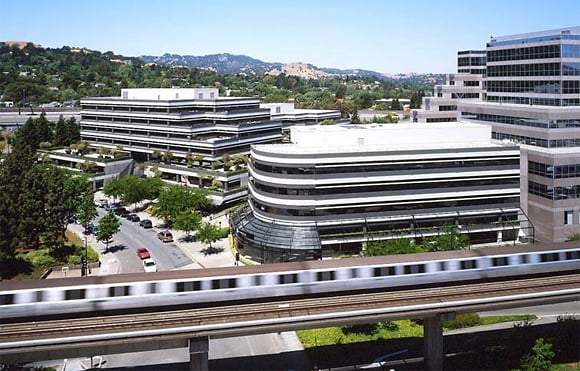Having hit bottom, high-end hotels and industrial properties should thrive
The outlook for investing in commercial real estate through real estate investment trusts is positive, said Peter Ricchiuti, an economist and assistant dean at Tulane University.
REITs should benefit from three very strong indicators, he said. First, very low interest rates will continue for the next couple years. Next, there's a positive spread between cost of buying real estate and financing it. Finally, there's very little new supply of real estate.
Mr. Ricchiuti was the keynote speaker this morning in Phoenix for the Investment Program Association's fall meeting. The IPA is a trade group for nontraded REIT sponsors and broker-dealers that sell the product. The meeting had 133 firms and 355 individuals in attendance.
“I think you've seen the bottom in real estate,” Mr. Ricchiuti said in an interview after his presentation. The question is, ‘How long does it take to come back?'”
Commercial real estate is not experiencing even the tepid recovery experienced by the broad economy, he said. “It's kind of bumping along the bottom.”
Still, with such factors as low interest rates and spreads between the cost of buying properties and interest rates, investing in commercial real estate has “powerful underpinnings,” Mr. Ricchiuti said.
The economist said he likes two sectors of commercial real estate at the moment: high-end hotels and industrial properties.
He's personally invested in a publicly traded REIT called LaSalle Hotel Properties ticker:LHO, and his students at Tulane follow EastGroup Properties Inc. ticker:EGP, which owns terminals and distribution facilities throughout the Sun Belt.
“Even though it's been hurt the worst in the downturn, the Sun Belt is where the growth is going to be,” Mr. Ricchiuti said. Owning industrial properties in the right places will be key as fuel prices rise, making efficient logistics more valuable, he said. Industrial properties also require less upkeep when tenants change, which is a plus, he said.
In general, Mr. Ricchiuti said he was positive about the outlook for the economy, noting it has not fallen into a double dip recession and is growing — although not fast enough to add jobs.
In a lively presentation, Mr. Ricchiuti said he did not envy the job facing Federal Reserve Chairman Ben S. Bernanke.
“I don't envy Ben Bernanke. He's facing all these problems, like Greece. It's like he's playing a big game of Whac-A-Mole.”







